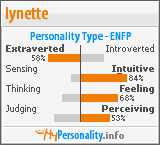The Best of The 31 Days of Halloween Series: Dies Irae from Verdi's Requiem
>> Saturday, October 16, 2010
Who can deny that the Day of Wrath is upon us when one hears the sounds of thundering tympani, blaring trumpets and a massive wall of choral sound raining down in angry, terrifying torrents?
The following is from Wikipedia regarding the creation of Verdi's Requiem:
When Gioachino Rossini died in 1868, Verdi suggested that a number of Italian composers should collaborate on a Requiem in Rossini's honor, and began the effort by submitting the conclusion, Libera me. During the next year a Messa per Rossini was compiled by 13 composers, famous at the time, of whom the only one well known today is Verdi himself. The premiere was scheduled for 13 November 1869, the first anniversary of Rossini's death.
However, on 4 November, nine days before the premiere, the organising committee abandoned it. Verdi blamed the scheduled conductor, Angelo Mariani, for this. He pointed to Mariani's lack of enthusiasm for the project, even though he had been part of the organising committee from the start, and it marked the beginning of the end of their long-term friendship. Verdi never forgave Mariani, although Mariani pleaded with him.[citation needed] The piece fell into oblivion until 1988, when Helmuth Rilling premiered the complete Messa per Rossini in Stuttgart.
In the meantime, Verdi kept toying with his Libera me, frustrated that the combined commemoration of Rossini's life would not be performed in his lifetime.
In May 1873, the Italian writer and humanist Alessandro Manzoni, whom Verdi had admired all his adult life and met in 1868, died. Upon hearing of his death, Verdi resolved to complete a Requiem—this time entirely of his own writing—for Manzoni. Verdi travelled to Paris in June, where he commenced work on the Requiem, giving it the form we know today. It included a revised version of the Libera me originally composed for Rossini.
The following is from Wikipedia regarding the creation of Verdi's Requiem:
When Gioachino Rossini died in 1868, Verdi suggested that a number of Italian composers should collaborate on a Requiem in Rossini's honor, and began the effort by submitting the conclusion, Libera me. During the next year a Messa per Rossini was compiled by 13 composers, famous at the time, of whom the only one well known today is Verdi himself. The premiere was scheduled for 13 November 1869, the first anniversary of Rossini's death.
However, on 4 November, nine days before the premiere, the organising committee abandoned it. Verdi blamed the scheduled conductor, Angelo Mariani, for this. He pointed to Mariani's lack of enthusiasm for the project, even though he had been part of the organising committee from the start, and it marked the beginning of the end of their long-term friendship. Verdi never forgave Mariani, although Mariani pleaded with him.[citation needed] The piece fell into oblivion until 1988, when Helmuth Rilling premiered the complete Messa per Rossini in Stuttgart.
In the meantime, Verdi kept toying with his Libera me, frustrated that the combined commemoration of Rossini's life would not be performed in his lifetime.
In May 1873, the Italian writer and humanist Alessandro Manzoni, whom Verdi had admired all his adult life and met in 1868, died. Upon hearing of his death, Verdi resolved to complete a Requiem—this time entirely of his own writing—for Manzoni. Verdi travelled to Paris in June, where he commenced work on the Requiem, giving it the form we know today. It included a revised version of the Libera me originally composed for Rossini.





























1 comments:
Verdi Requiem. . . wow. . my favorite. . thanks for sharing this.
Post a Comment